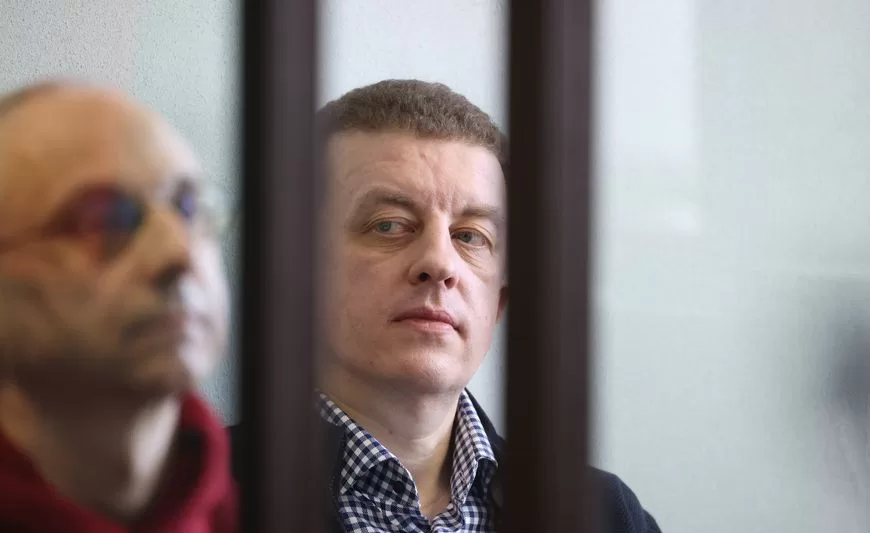
This article is part of a series based on our report, Time to Step Up: The EU and freedom of expression
Collectively, the European Union of 28 member states has an important role to play in the promotion of freedom of expression in the world. Firstly, as the world’s largest economic trading block with 500 million people that accounts for about a quarter of total global economic output, it still has significant economic power. Secondly, it is one of the world’s largest “values block” with a collective commitment to the Universal Declaration of Human Rights, the International Covenant on Civil and Political Rights and perhaps more significantly, the European Convention on Human Rights. The Convention is still one of the leading supranational human rights treaties, with the possibility of enforcement and redress. Finally, Europe accounts for two of the five seats on the UN Security Council (Britain and France), so has a crucial place in the global security framework. The EU itself has limited foreign policy and security powers (although these powers have been enhanced in recent years), leaving significant importance to the foreign policies of the member states. Where the EU acts with a common approach it has leverage to help promote and defend freedom of expression globally.
How the European Union supports freedom of expression abroad
The European Union has a number of instruments and institutions at its disposal to promote freedom of expression in the wider world, including its place as an observer at international fora, its bilateral and regional agreements, the European External Action Service (EEAS) and geographic policies and instruments including the European Neighbourhood Policy (ENP) and the European Neighbouring and Partnership Instrument (ENPI). The EU places human rights in its trade and aid agreements with third party countries and has over 30 stand-alone human rights dialogues. The EU also provides financial support for freedom of expression through the European Development Fund (EDF), the Development Co-operation Instrument (DCI), the European Instrument for democracy and human rights (EIDHR) and the European Endowment for Democracy (EED). The EU now also has a Special Representative for Human Rights. Since 1999, the EU has published an annual report on human rights and democracy in the world. The latest report, adopted in June 2012, contains a special section on freedom of expression, including freedom of expression and “new media”. It recalls the EU’s commitment to “fight for the respect of freedom of expression and to guarantee that pluralism of the media is respected” and emphasises the EU’s support to free expression on the internet.
The European Union has two mechanisms to financially support freedom of expression globally: the European Instrument for democracy and human rights (EIDHR) and the European Endowment for Democracy (EED). The latter was specially created after the Arab Spring in order to resolve specific criticism of the EIDHR: that it didn’t support political parties, non-registered NGOs and trade unions and could not react quickly to events on the ground. The EED is funded by, but is autonomous from, the European Commission, with support from member states and Switzerland. The aims of the EED, to provide rapid and flexible funding for pro-democratic activists in authoritarian states and democratic transitions, is potentially a “paradigm shift” according to experts that will have to overcome a number of challenges, in particular a hesitation towards funding political parties and the most active and confrontational of human rights activists. The EU also engages with the UN on human rights issues at the Human Rights Council (HRC) and in the 3rd Committee of the General Assembly. The EU, as an observer along with its member states, is one of the more active defenders of freedom of expression in the HRC. Promoting and protecting freedom of expression was one of the EU’s priorities for the 67th Session of the UN General Assembly (September 2012-2013). The European Union was also instrumental in the adoption of a resolution on the “Safety of Journalists” (drafted by Austria) in September 2012. The European Union is most effective at the HRC where there is a clear consensus among member states within the Union . Where there is not, for instance on the issue of blasphemy laws, the Union has been less effective at promoting freedom of expression.
The EU and its neighbourhood
The EU has had mixed success in promoting freedom of expression in its near neighbourhood. Enlargement has clearly been one of the European Union’s most effective foreign policy tools. Enlargement has had a substantial impact both on the candidate countries’ transition to democracy and respect for human rights. With enlargement slowing, the leverage the EU has on its neighbourhood is under pressure. Alongside enlargement, the EU engages with a number of foreign policy strategies in its neighbourhood, including the Eastern Partnership and the partnership for democracy and shared prosperity with the southern Mediterranean. This section will look at the effectiveness of these policies and where the EU can have influence.
The EU and freedom of expression in its eastern neighbourhood
Europe’s eastern neighbourhood is home to some of the least free places for freedom of expression. The collapse of the former Soviet Union and the enlargement of the European Union has significantly improved human rights in eastern Europe. There is a marked difference between the leverage the European Union has on countries where enlargement is a real prospect and the wider eastern neighbourhood, where it is not, in particular for Russia and Central Asia. In these countries, the EU’s influence is more marginal. Enlargement has clearly had a substantial impact both on the candidate countries’ transition to democracy and their respect for human rights because since the Treaty of Amsterdam, respect for human rights has been a condition of accession to the EU. In 1997, the Copenhagen criteria were outlined in priorities that became “accession partnerships” adopted by the EU and which mapped out the criteria for admission to the EU. They related in particular, to freedom of expression issues that needed to be rectified. With the enlargement process slowing since the “big bang” in 2004, and countries such as Ukraine and Moldova having no realistic prospect of membership regardless of their human rights record, the influence of the EU is waning in the wider eastern neighbourhood.
After enlargement, the Eastern Partnership is the primary foreign policy tool of the European Union in this region. Launched in 2009, the initiative derives from the EU’s Neighbourhood Policy (ENP), which is specific about the importance of democracy, the rule of law and respect for human rights. In this region, the partnership covers Armenia, Azerbaijan, Belarus, Georgia, Moldova and Ukraine. Freedom of expression has been raised consistently during human rights dialogues with these six states and in the accompanying Civil Society Forum. The Civil Society Forum has also been useful in helping to coordinate the EU’s efforts in supporting civil society in this region. Although it has never been the main aim of the Eastern Partnership to promote freedom of expression, it has had variable success in promoting this right with concrete but limited achievements in Belarus, the Ukraine, Georgia and Moldova; with a more ineffectual role being seen in Azerbaijan.
In recent years, since the increased input of the EEAS in the ENP, the policy has become more markedly political, with a greater emphasis on democratisation and human rights including freedom of expression after a slow start. In particular, freedom of expression was raised as a focus for the ENP after its review in 2010-2011. This is a welcome development, in marked contrast to the technical reports of previous years. This also echoes the increased political pressure from member states that have been more public in their condemnation of human rights violations, in particular regarding Belarus. Belarus is one Eastern Partnership country where the EU has exerted a limited amount of influence. The EU enhanced its pressure on the country after the post-presidential election clampdown beginning in December 2010, employing targeted sanctions and increasing support to civil society. This has arguably helped secure the release of some of the political prisoners the regime detained. Yet the lack of a strong sense of strategy and unity within the Union has hampered this new pressure to deliver more concrete results. Likewise, the EU’s position on Ukraine has been set back by internal divisions, even though the EU’s negotiations on the Association Agreement included specific reference to freedom of expression.
In Azerbaijan, the EU’s strategic oil and gas interests have blunted criticism of the country’s poor freedom of expression record. Azerbaijan holds over 89 political prisoners, significantly more than in Belarus, yet the EU’s institutions, individual member states and European politicians have failed to be vocal about these detentions, or other freedom of expression violations. In the EU’s wider neighbourhood outside the Eastern Partnership, the EU has taken a less strategic approach and accordingly has been less successful in either raising freedom of expression violations or helping to prevent them.
The European Union’s relationship with Russia has not been coherent on freedom of expression violations. While the institutions of the EU have criticised specific freedom of expression violations, such as the Pussy Riot sentencing, they were slow to criticise more sustained attacks on free speech such as the clampdown on civil society and the inspections of NGOs using the new Foreign Agents Law. The progress report of EU-Russia Dialogue for Modernisation fails to mention any specific freedom of expression violations in Russia. The EU has also limited its financial involvement in supporting freedom of expression in Russia, unlike in other post-Soviet states. The EU is not united on this criticism: individual European Union member states such as Sweden and the UK are more sustained in their criticisms of Russia’s free speech violations, whereas other member states such as Germany tend to be less critical. It is argued that Russia’s powerful economic interests have facilitated a significant lobbying operation including former politicians that works to reduce criticism of Russia’s freedom of expression violations.
In this region, the European Union’s protection of freedom of expression is weakest in Central Asia. While the EU has human rights dialogues with Kazakhstan, Kyrgyzstan, Tajikistan, Turkmenistan and Uzbekistan, it has not acted strategically to protect freedom of expression in these countries. The EU dramatically reduced its leverage in Uzbekistan in 2009 by relaxing arms sanctions with little in return from the Uzbek authorities, who continue to fail to abide by international human rights standards. Arbitrary arrests, beatings and torture at the hands of the security services, as well as unfair trials of the regime’s critics are all commonplace. The European Parliament’s special rapporteur report of November 2012, took a tough stance on human rights in Kazakhstan, making partnership conditional on respect for Article 10 rights. But, this was undermined by High Representative Baroness Ashton’s visit to the country in November 2012, where she failed to raise human rights violations at all.
This lack of willingness to broach freedom of expression issues continued during Baroness Ashton’s first official visit to four of the five Central Asian republics: Kyrgyzstan, Uzbekistan, Tajikistan and Kazakhstan. In Kyrgyzstan she additionally attended an EU-Central Asia ministerial meeting, where the Turkmen government (one of the top five most restrictive countries in the world for freedom of expression) was represented. Baroness Ashton’s lack of vocal support for human rights was condemned by local NGOs and international watchdogs.




